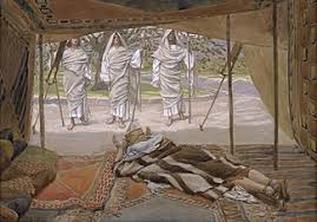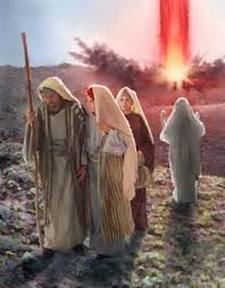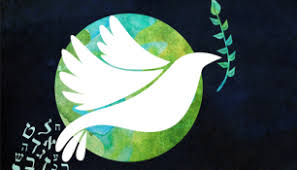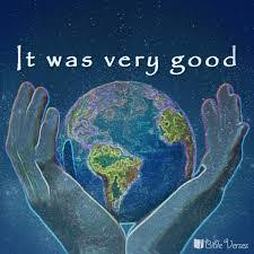
ויקח חמאה וחלב ובן־הבקר אשׁר עשׂה ויתן לפניהם והוא־עמד עליהם תחת העץ ויאכלו׃
Avraham ran to the herd, took a good, tender calf and gave it to the servant, who hurried to prepare it. Then he took curds, milk and the calf which he had prepared, and set it all before the men; and he stood by them under the tree as they ate.
(Gen 18:7-8 CJB)
CHICKEN IN THE DESERT.
Three strangers approached Abraham in the desert. I crossed the desert on foot when I was a teenager (18 years-old). My life had taken such confusing turns that I felt I needed to check with God on some things so as crazy as it sounds, I decided to walk from Jerusalem to the Saint-Catherine's Greek Orthodox monastery where people say is Mt Sinai. God was not there. It was probably the wrong mountain since Mt Horeb is said to be in Midian (Ex 3:1), not in the Sinai peninsula.
In any case, I crossed the desert on foot. I had with my guitar, a backpack, a shoulder bag, a small cantine of water and no food. I also had a small compass to make sure that from sand dune to sand dune I was going due south. At this point of the story, you must wonder what kind of nutty teenager I was. I have often wondered that myself.
You can walk on 5th Avenue in NY City and see millions of people while never meeting not talking to any. It is not the same in the desert. When you see someone in the desert, you talk to them, make sure they are OK and have everything they need. It was so for me. Each day I would meet a Bedouin shepherd who filled my cantine with goat milk and gave me some “tent-made” cereal to mix with it. One night I was even got invited for an authentic shish-kabab dinner in the tent and spent the night there.
One night I went to sleep near a sand dune. I used a stone for a pillow as is customary in the Sinai desert. In the morning I woke up and had nothing to eat. Suddenly I hear the clucking of a chicken. I tried to catch it but then realized that it was useless I wouldn't know what to do with it once I did. I then turned my attention to find eggs which I did in the shade of a stone. I made holes on both sides of the eggs and drank them. That was my breakfast that day. Even in the desert, HaShem can provide eggs.
THE HOSPITALITY OF ABRAHAM.
Abraham was also great at the desert tradition of hospitality. Till this day Abraham is spoken as the chief-host of the Bible. He would have gotten a great AirBnB rating. Abraham did not wait for visitors to pass by his tent that was opened on 4 sides. He was known to send his servant Eliezer by the highways and byways to compel them to come in to be refreshed in his master’s tent.
When he saw the people he “ran from the tent door to meet them, prostrated himself on the ground, and said, "My lord, if I have found favor in your sight, please don't leave your servant. Please let me send for some water, so that you can wash your feet; then rest under the tree, and I will bring a piece of bread. Now that you have come to your servant, refresh yourselves before going on." (Gen 18:2-5 CJB)
He offers some water to wash their feet and a morsel of bread. But what does he really do? He prepares a feast for them. “Avraham hurried into the tent to Sarah and said, "Quickly, three measures of the best flour! Knead it and make cakes." Avraham ran to the herd, took a good, tender calf and gave it to the servant, who hurried to prepare it. Then he took curds, milk and the calf which he had prepared, and set it all before the men; and he stood by them under the tree as they ate.” (Gen 18:6-8 CJB)
He didn’t relay the task to one of his servants but did it himself though he was sick He was sick as it was the 3rd day after his circumcision, the day when the fever is at its highest. That is why it says, “Adonai appeared to Avraham by the oaks of Mamre as he sat at the entrance to the tent during the heat of the day.” (Gen 18:1 CJB) The Lord paid a visit to sick Abraham. This is where the important mitzvah of visiting comes from.
WHAT DO WE LEARN FROM THIS?
Today’s common sense advertisement driven market economy says, “Promise the moon though you can’t only deliver the ceiling! It is the same with politicians who promise above what they can really deliver. It should not be so with us. Yeshua chided certain adversarial Pharisees by telling them, "If you are children of Avraham, then do the things Avraham did! (Joh 8:39 CJB) As children of Abraham, we should also do the deeds of Abraham who promised little but delivered much!
Jewish historical writings tell us that when a visitor came to his tent, Abraham would offer them a feast then ask them to thank the God who provided it. He shared with others the greatness of the God he served by serving them a meal worthy of his God. (Mat 20:28; John 10:10) .
“May we like Abraham consider the mitzvah of hospitality one of the greatest mitzvah of all. May we find glory, joy in serving those HaShem loved so much "that he gave his only and unique Son, so that everyone who trusts in him may have eternal life, instead of being utterly destroyed. (Joh 3:16 CJB). May we find fulfillment in cooking, setting the table, doing the dishes, and cleaning after those whom Yeshua suffered and died for.”



 RSS Feed
RSS Feed